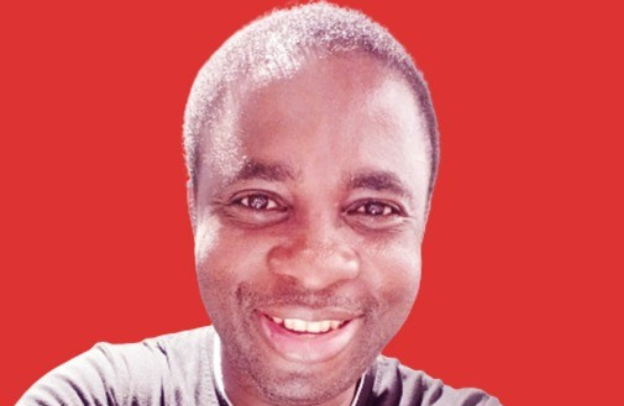Obehi Ewanfoh’s 46th Birthday Reflection: Celebrating Gratitude, Family, and the Art of Storytelling

What does it truly mean to be grateful for simply being here? How do we measure a life—by its achievements, its struggles, or by the people who accompany us on the journey and the lessons they impart? As I celebrate my 46th birthday today, these are the questions that occupy my mind as I pause to reflect in gratitude.
Learn How to Leverage Your Story through our Story To Asset Transformation (S.A.T) Framework.
It’s 21 years ago, that I left the familiar streets of Uromi, Nigeria, and journeyed to Verona, Italy, with little more than hope and an unwavering belief that I could create something meaningful out of my life. Now, with over four decades of lived experiences behind me, I realize one thing with certainty: gratitude is the thread that holds it all together.
This isn’t just about being grateful for the big wins—my writing, my podcasts, my achievements. It’s about appreciating the simple truth that I am still here.
- I have seen moments of joy,
- Moments of extreme challenges,
- And moments where I felt completely lost myself.
The one constant, however, has been gratitude—gratitude for my parents, my family, my friends, and, above all, for the story that continues to unfold before me.
The Gift of Family: Roots That Ground Me
When I look back on my life, I can’t help but think about the people who helped shape me, especially my parents. May their gentle souls rest in peace.
Born and raised in the small town of Uromi, in Edo State, Nigeria, my world was defined by the love and sacrifices of my family. I wouldn’t be who I am today without their unwavering support, both when I was a child, helpless and naive, and in the years that followed.
I was fortunate to have older brothers who saw in me the potential for something greater, even when the world around us seemed indifferent to our dreams. It has only been possible because of them.
My grandmother and mother, with their boundless wisdom and unwavering strength, were the guiding lights that taught me how to navigate life’s many obstacles. Together, their love, support, and guidance molded my character and instilled in me a deep sense of purpose.
We often speak of the African principle of community, but I can say with certainty that it’s not just a concept; it’s the foundation of everything I do.
Today, if my father and mother were still with us, I know they would continue to offer their guidance, even from miles away. Through their example, I have come to understand that family, in its truest form, isn’t just present for the joyful moments—it’s there, unwavering, during the hardest of times as well.
I wouldn’t be where I am today without that enduring support, and for that, I am forever grateful.
Resilience and Overcoming Challenges
Of course, life has not been without its challenges. Like many others, I have faced obstacles that seemed insurmountable at times. Whether it was navigating a new culture in Italy, dealing with personal losses, or trying to build a career in the uncertain world of writing and storytelling, the journey has not always been easy.
But through every challenge, I have learned the power of resilience. It’s one thing to survive hardships, but it’s another thing to find meaning in them, to use them as fuel for personal and professional growth.
You might also want to see Owing Your Personal Sovereignty, Decolonizing and Democratizing the Future and Personal Narratives – Zahara Chetty
I often reflect on how the African diaspora has profoundly shaped my understanding of resilience. Our history is rich with stories of survival and perseverance in the face of adversity.
Whether it’s the painful legacy of slavery, the scars of colonialism, or the ongoing fight for equality, the African experience is undeniably defined by resilience. Later today, for example, I will be hosting a discussion on “The Role of Emotional Resonance in Stories” as part of our monthly business storytelling event.
This is the work I am passionate about—bringing together like-minded individuals from across the African diaspora to share our stories, exchange experiences, and reflect on the powerful lessons we learn along the way.
I often turn to my work in storytelling as a reminder of this. Storytelling, for me, is a way of turning challenges into opportunities. It’s about transforming life lessons into something that can inspire others.
Through the Story to Asset Transformation (S.A.T.) framework that I have developed, I help individuals and professionals from all walks of life take ownership of their stories, turning them into assets that drive personal and professional growth.
In my own life, storytelling has been a powerful tool for self-discovery. It’s a way of understanding my own struggles and triumphs and sharing them with others to inspire and create change.
Through my podcast (The Obehi Podcast) and writing, I have had the privilege of speaking to different people who have faced their own unique challenges—challenges that often mirror the broader experiences of the African diaspora.
These shared stories not only connect us but also help us build a stronger sense of identity and community. These are important for us.
The Journey of Transforming Life Into Legacy
Long before I left Nigeria in 2004, I began writing stories that reflected the world I lived in, a world shaped by the struggles and triumphs of the people around me. My first book, Round My Mind: The Battle for Okodo, was written when I was still in junior secondary school.
Though completely rewritten in 2024—two decades later—Round My Mind was initially a raw attempt to capture my thoughts and experiences. That humble beginning set me on a path that would ultimately lead to the publication of over ten books and a career built around the art of storytelling.
One of my greatest passions has been advocating for the power of cultural narratives. As someone deeply connected to the African diaspora, I believe we must take ownership of our stories.
See also Overcoming African Brain Drain Through Agribusiness: The Role of the Diaspora
Too often, we have been told who we are and how we should be, rather than being encouraged to tell our own stories. This is why I have spent years exploring the ways in which stories can be leveraged for personal and collective transformation.
To that end, I have developed a 90-day signature program, “Own Your Story”, designed for those who are ready to take full ownership of their narrative and harness its power.
In my work at AClasses Academy and the We Diasporan non-profit project, I help individuals harness the power of their own stories—turning them from mere experiences into valuable assets that can drive change, create opportunities, and inspire others.
Storytelling is a tool for empowerment. It is the key to understanding who we are, where we have been, and where we are going.
As an advocate for cultural travel and creative entrepreneurship, I frequently address how African narratives have often been commodified for entertainment rather than leveraged for true empowerment.
If this resonates with you, I’d like to invite you to our upcoming monthly live event on Monday, February 10th, where we’ll be discussing How to Approach Marketing in Tourism with a diverse group of professionals from the travel and hospitality sectors. It promises to be an insightful conversation, and I’d love for you to join us.
My documentary films, Creating the Blackness of Africa and Pan-Africanism: Testing Ideas on Reality, were an attempt to challenge the simplistic narratives often imposed on African identity. It’s about time we take control of how we tell our own stories—not just to the world but also to ourselves.
Last night, and again later today on The Obehi Podcast, we’re taking a deep dive into the current situation in Congo, exploring how it shapes and influences our narrative as Africans, home and abroad. The full episode will be released in the coming days, and I invite you to tune in for this important discussion.
Gratitude for the Past, Hope for the Future
As I reflect on my 46 years, I am filled with a profound sense of gratitude—not just for the past, but also for the future. I am grateful for the opportunities I’ve had to make an impact, to empower others, and to contribute to a larger conversation about identity, culture, and storytelling.
But there’s still so much more to do. As a global community, we are faced with a unique set of challenges—economic inequality, political instability, and a lack of unity within the diaspora.
Yet, I am hopeful. The future is bright because we have the tools, our stories, our resilience, and our collective power to overcome any obstacle.
I am committed to continuing the work I have started, knowing that each step I take is part of a larger, ongoing journey. Whether through my podcast, my writing, or my work in the diaspora community, I aim to build a legacy rooted in gratitude, empowerment, and transformation.
Conclusion: A Life Rich in Gratitude
As I celebrate this milestone, I’m reminded of the profound importance of gratitude. It’s not merely a feeling—it’s a practice, a mindset, a lens through which we engage with the world. Gratitude shapes how we reflect on the past, navigate the present, and approach the future with purpose and clarity.
It’s a reminder that every day is a gift and that the people we love and the stories we tell are the things that truly define us.
To anyone reading this, I urge you to reflect on your own journey. Learn to appreciate the people who have helped you along the way. Celebrate the challenges that have made you stronger. And most importantly, embrace the power of your own story because the world needs it. Thank you.
Learn How to Leverage Your Story through our Story To Asset Transformation (S.A.T) Framework.





